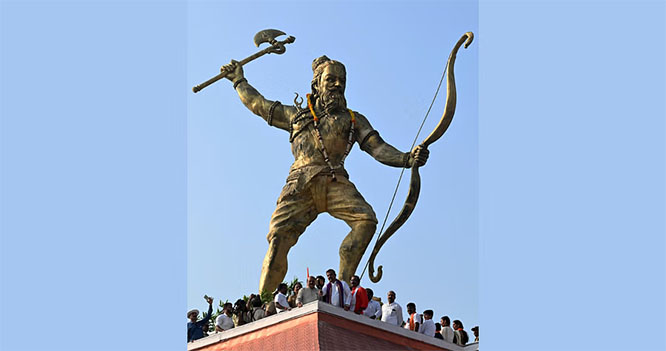Hamas says the Israeli regime’s sole objective lies in “erasing” the entirety of the Palestinian population from across the Palestinian territories.
Khalil al-Hayya, a ranking official with the Gaza Strip-based Palestinian resistance movement, made the remarks to the Palestinian al-Aqsa TV on Wednesday.
“The occupation targets everyone—it strikes hospitals, civil defense, women, children, and the elderly,” he said, adding that the regime sought to “empty Gaza of its residents, and displace the Palestinian people to fulfill its dreams of building a Zionist Jewish state across all of Palestine.”
The remarks came amid the regime’s October 2023-present war of genocide on the coastal sliver that has so far claimed the lives of nearly 44,000 Palestinians, mostly women and children.
“This unprecedented aggression in modern times evokes scenes from the dark ages of human history, having crossed all red lines and exceeded every expectation of brutality in the modern era,” the Palestinian official lamented.
He also regretted that the regime had added “systematic and dangerous starvation to its aggression, falsely claiming before the world that it allows 250 [aid] trucks into Gaza daily. In reality, the number of trucks is far fewer.”
Hayya, meanwhile, regretted that “scenes of children torn apart, women screaming over their children, and heart-wrenching destruction have failed to stir enough humanity to stop these crimes.”
He decried the United States for vetoing the United Nations Security Council’s resolutions that are aimed at bringing about a potential ceasefire in the war, saying this indicated Washington’s “partnership in the aggression” and a simultaneous siege that the Israeli regime has been enforcing on Gaza.
Addressing Israeli Prime Minister Benjamin Netanyahu, the official asserted that, despite what the Israeli official is after, Hamas would not hand over the regime’s captives “without [the regime’s] stopping the war.”
He called Netanyahu “the main obstacle” in the way of cessation of the aggression, saying the Israeli premier “blocks any progress for political reasons,” and citing his preventing conclusion of a ceasefire agreement in July.
Hayya also warned that the regime sought to expand the war beyond Gaza, but asserted that its goals are “impossible and will never happen.”
“Today, the enemy exposes its true intentions of extermination and displacement, but it will fail,” he stressed.
“The Palestinian people are resilient and will not surrender, as they believe in their humanitarian and political cause. The enemy and its allies will not succeed in achieving their goals. This steadfast people will endure, and the occupation will not prevail against them.”









Comments
Add new comment